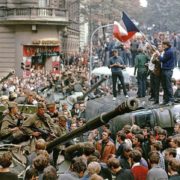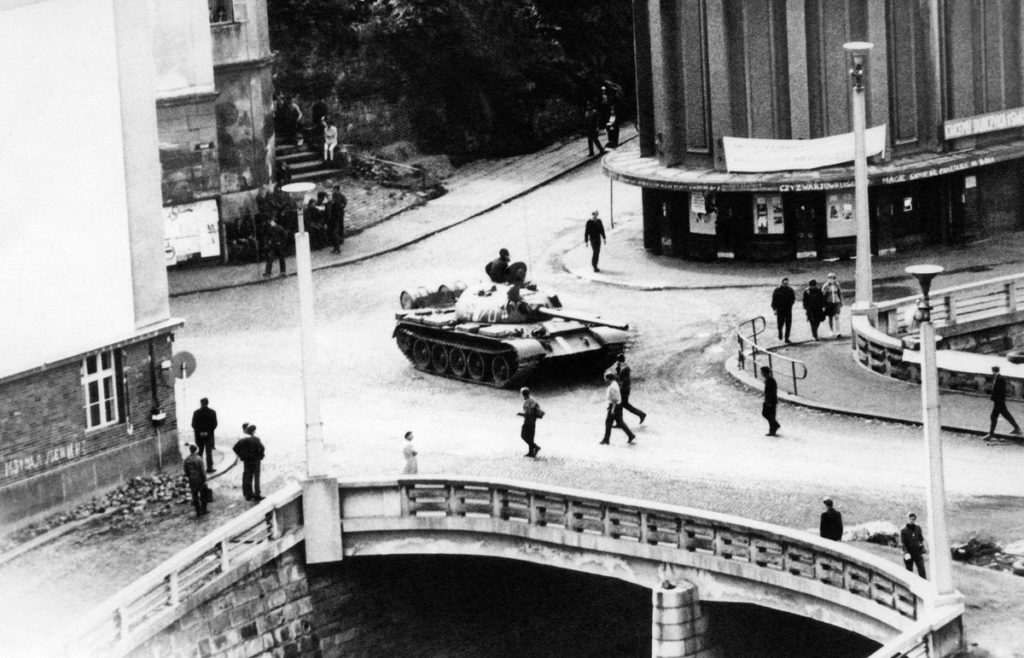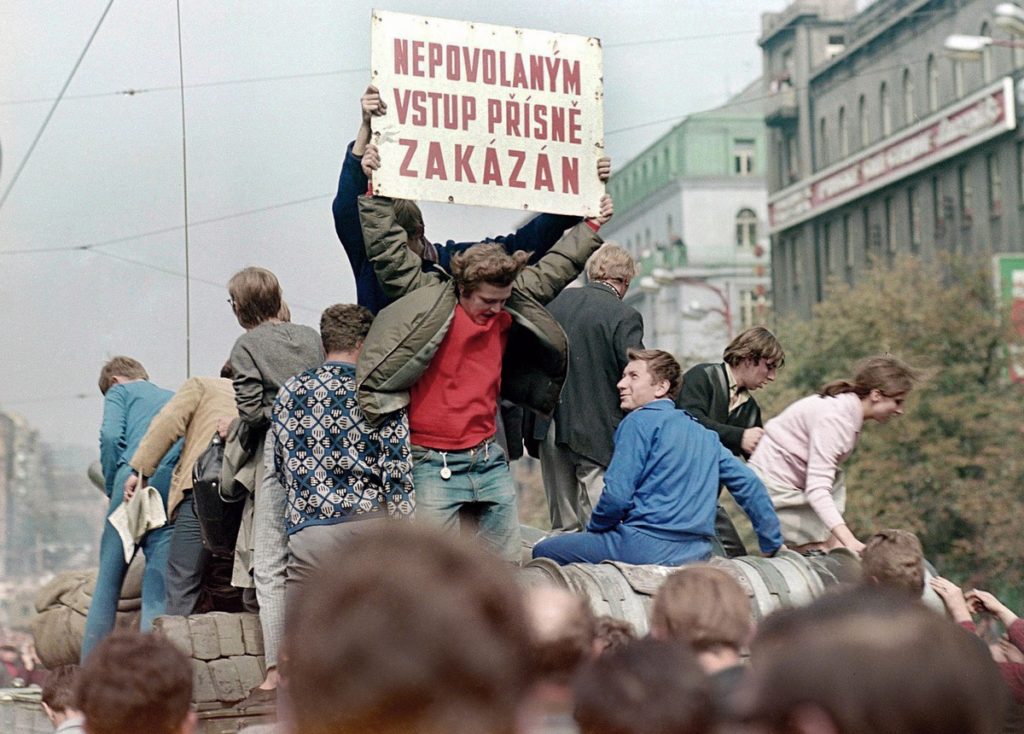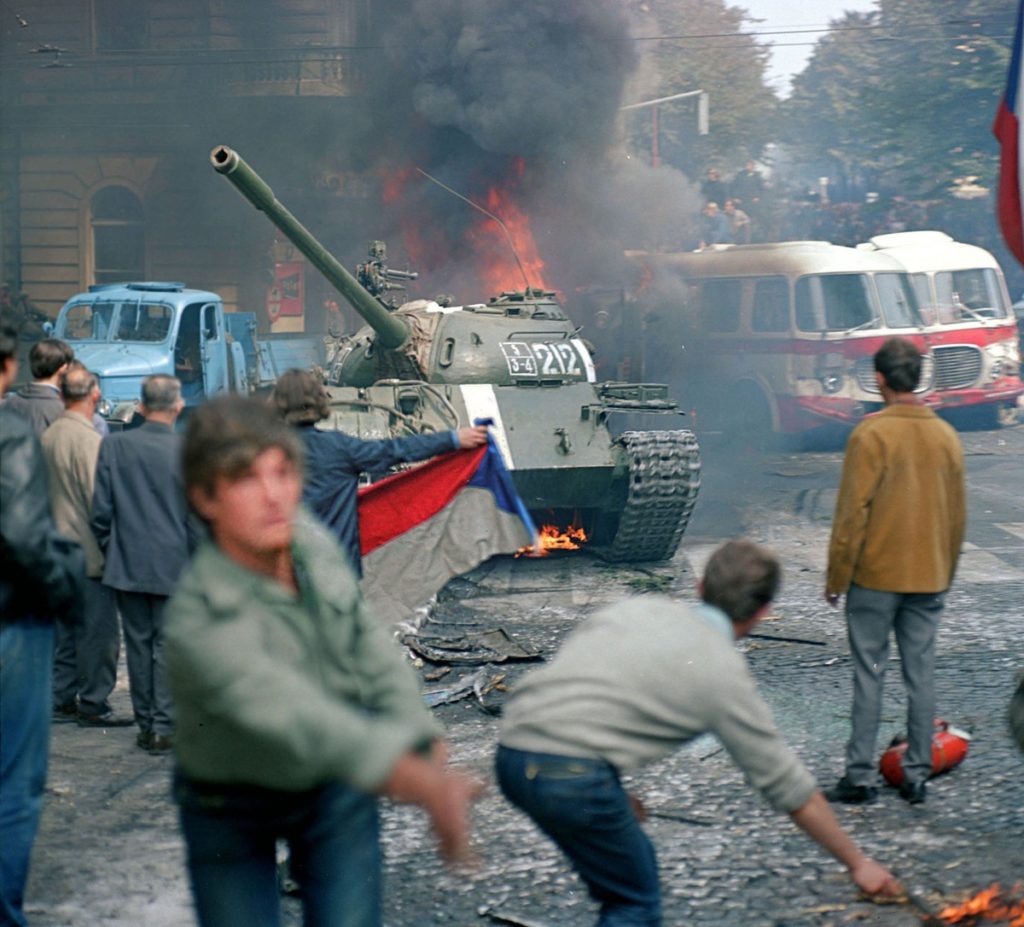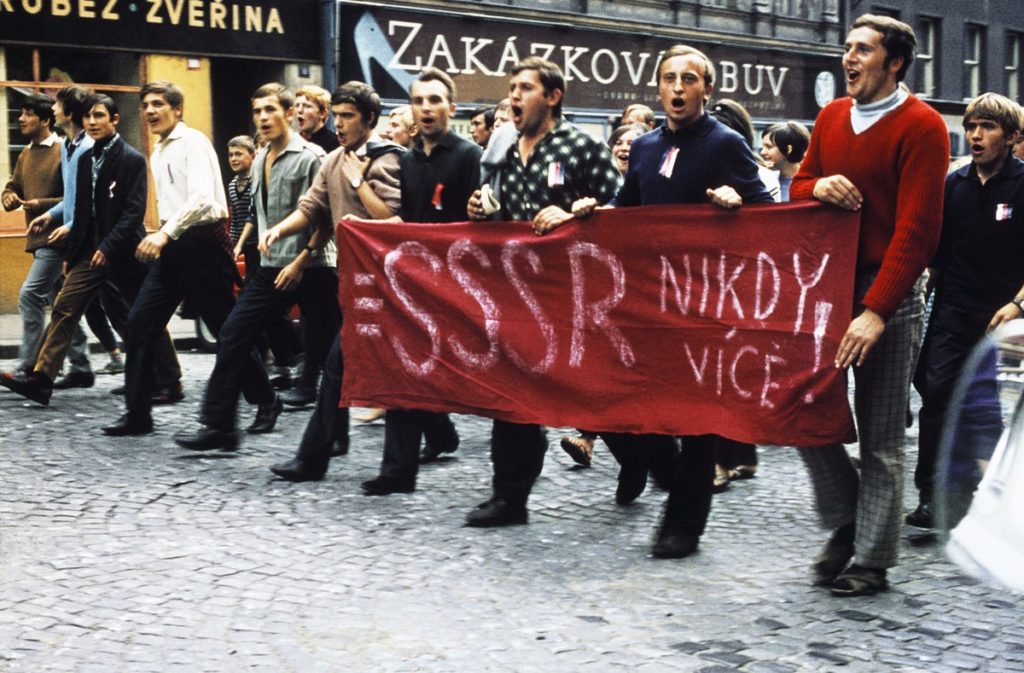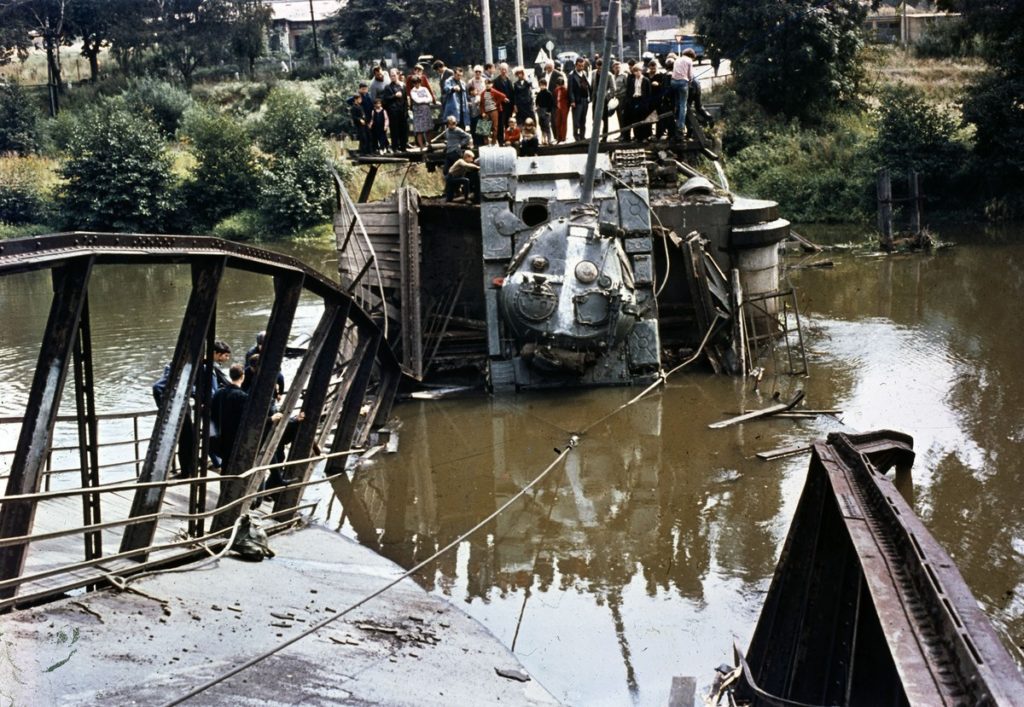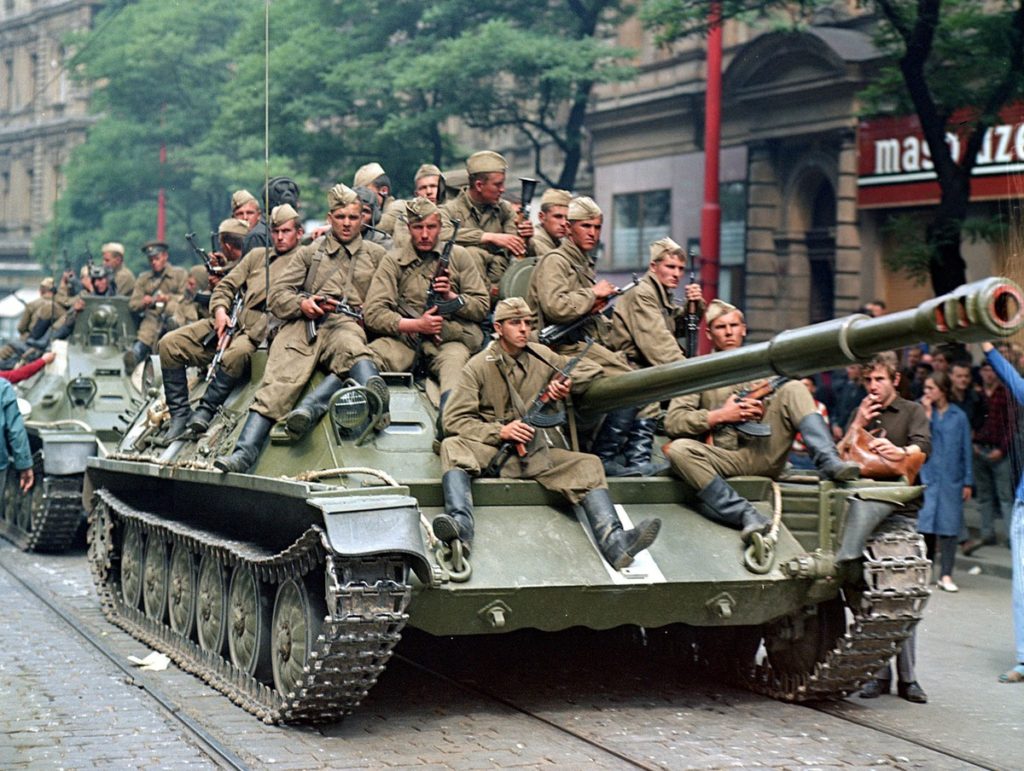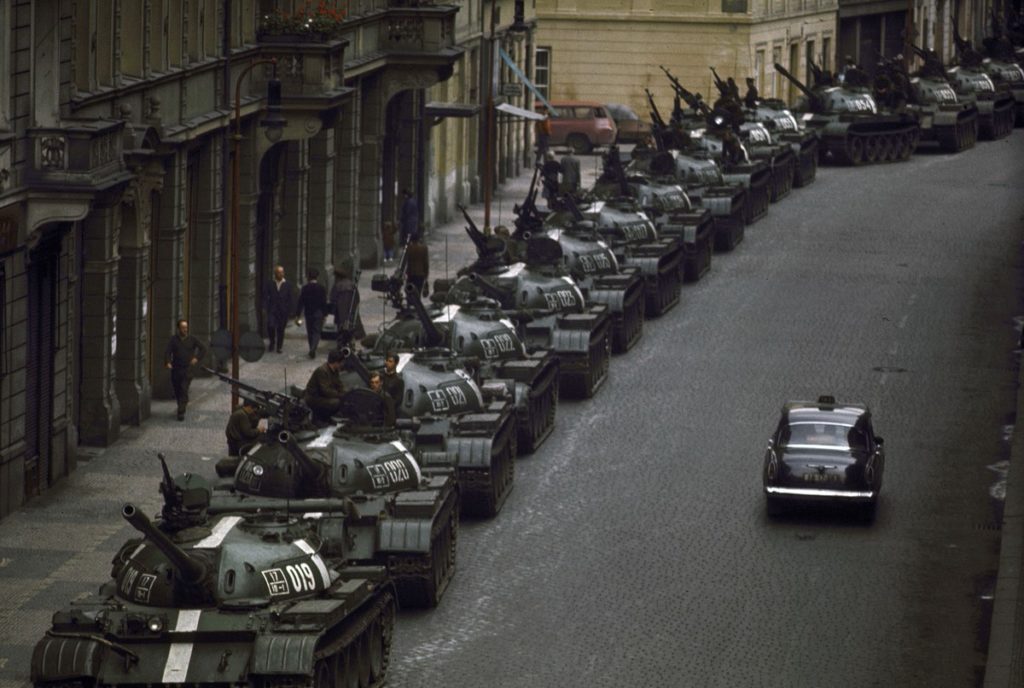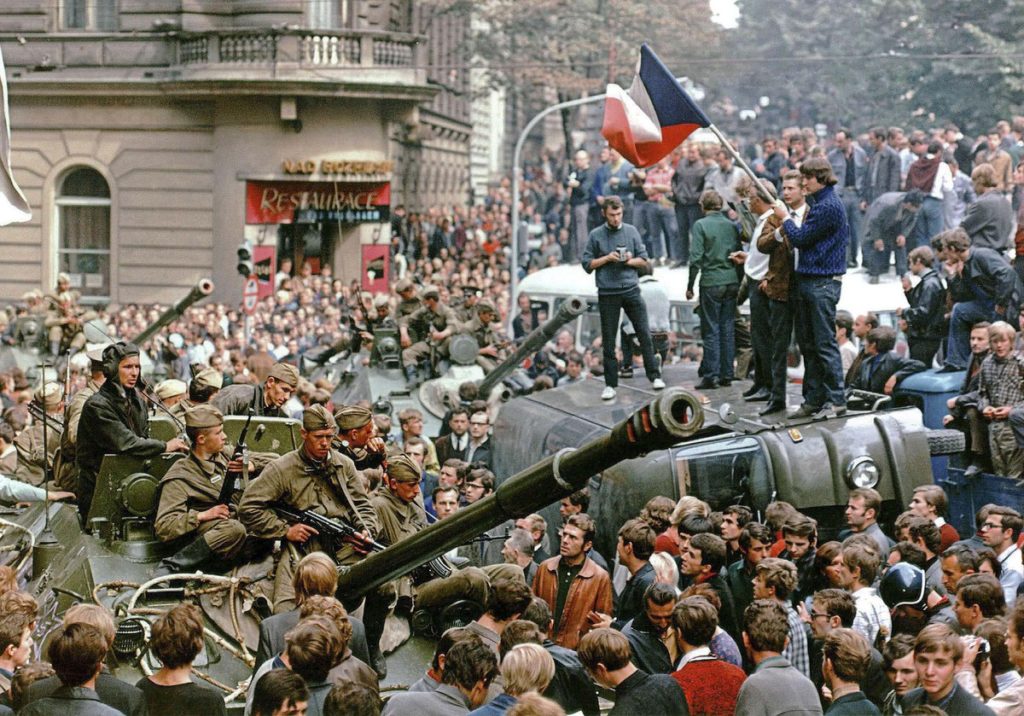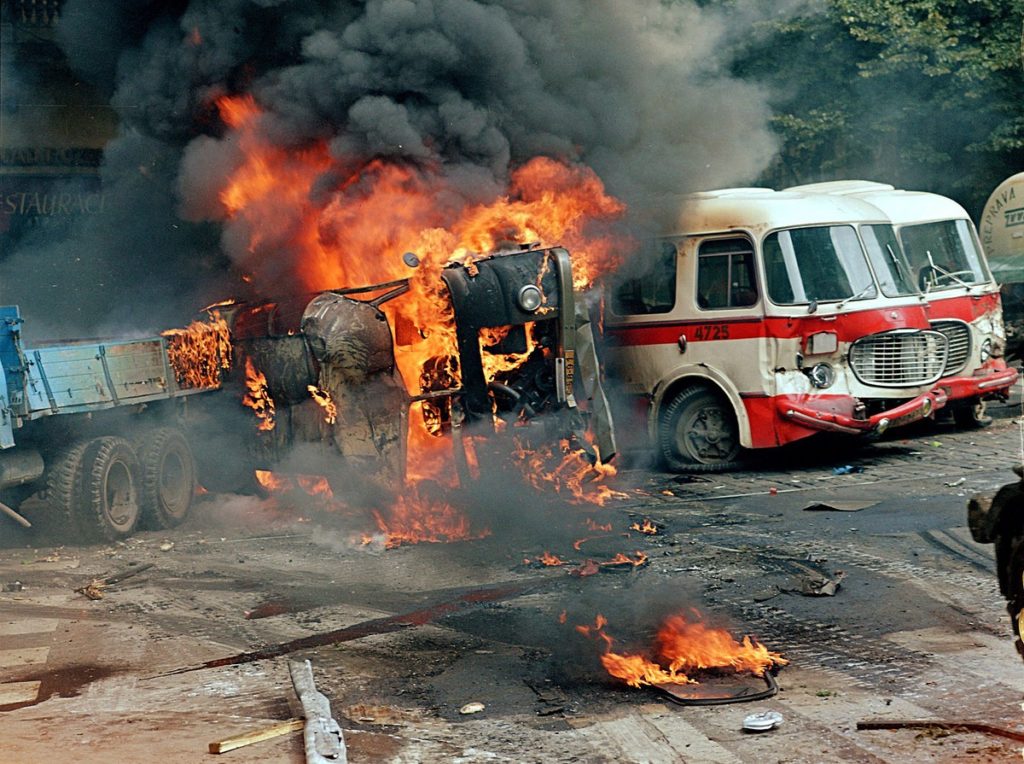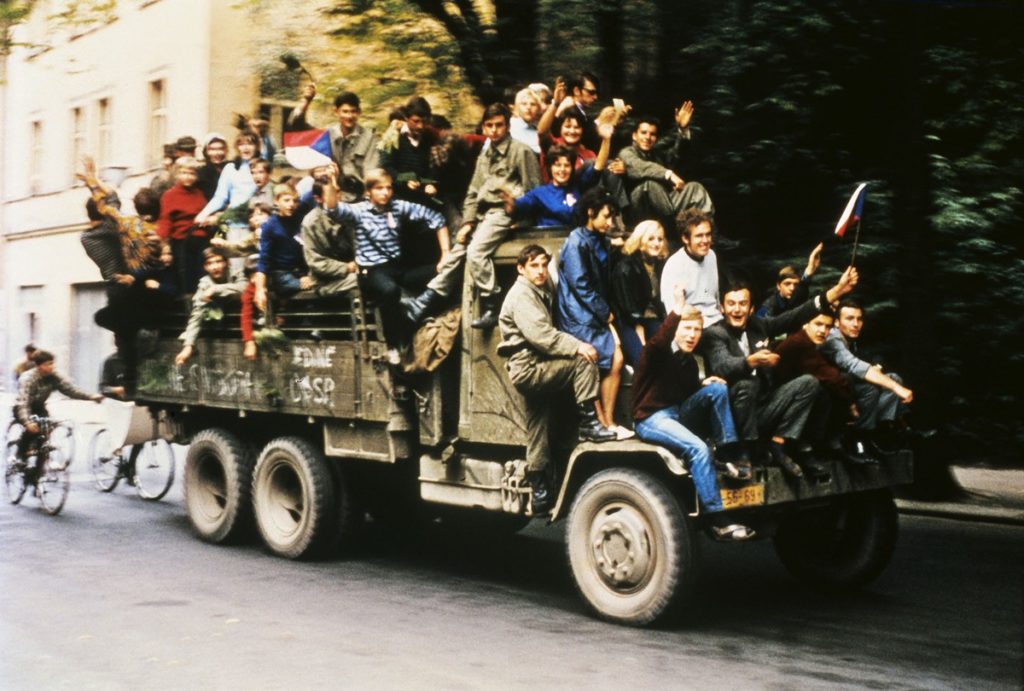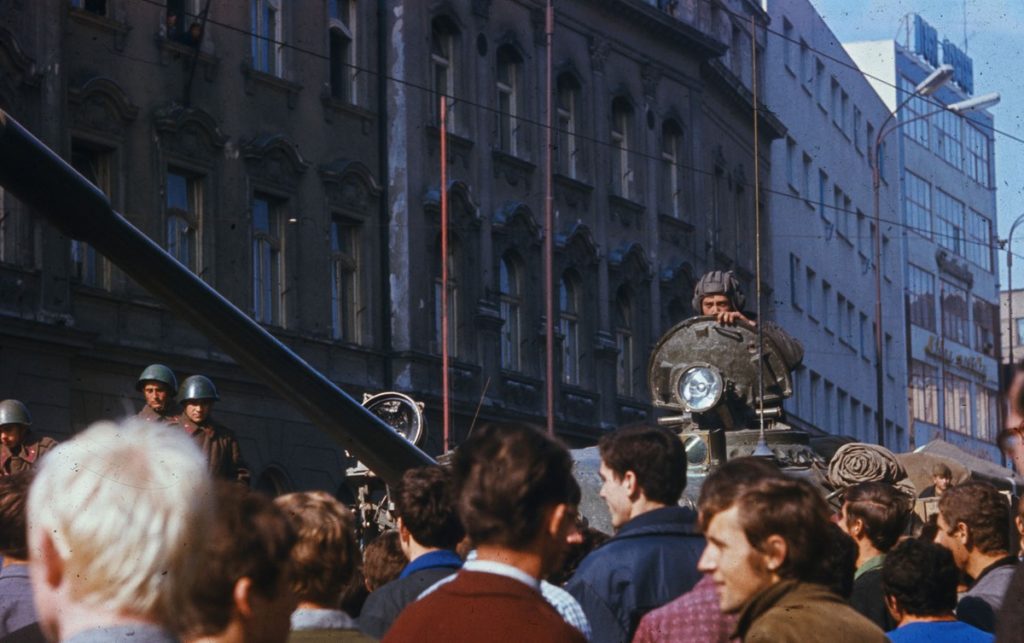In 1968, during a period called the “Prague Spring,” Alexander Dubček, the newly elected leader of Czechoslovakia, enacted pro-democracy reforms that loosened state control and expanded individual rights, giving hope to citizens and angering the Soviet Union.
Soviet leaders in Moscow believed that Czechoslovakia, a member of the Warsaw Pact, had gone too far, and summoned the country’s leaders for discussions. By late summer, the talks were not going the way the Kremlin had wanted, so more than 2,000 tanks and thousands more Warsaw Pact troops were sent to invade and occupy the country on August 21.
In the first weeks, occupying soldiers were met with protests and limited resistance, and more than 70 civilians were killed in the conflicts.





